Text
LISTEN: My December 16th Interview on G-Town Radio’s “The (Not So) Hidden Agenda”
Last weekend I had the pleasure of being a featured guest on The (Not So) Hidden Agenda, a live radio show where host Dr. Stephanie Heck interviews local artists, authors, musicians, actors, politicians, professionals, and activists about their work in the local community and beyond. Interviews focus not only on each guest’s current work, but also on who they are as individuals and what path led them to have and to pursue their passion. The goal of this show is not just to talk about what each person is doing (ie, their “art”), but to uncover their story. In other words, the (not so) hidden agenda is to reveal the story behind the art!
Check out the podcast episode of our conversation, and tune in LIVE to hear Dr. Stephanie Heck and her guests every Saturday from 4:00-5:00pm on G-Town Radio, The Sound From Germantown!
#voices for racial healing#the not so hidden agenda#stephanie heck#g-town radio#germantown#philadelphia#tieshka smith#photography by tieshka smith#philadelphia photographers#racism is a sickness#gentrification#displacement#philadelphia assembled
2 notes
·
View notes
Text
#FiveQuestions With“Healing The Disease of Racism” Creator, Rhonda Sekhmet-Ra
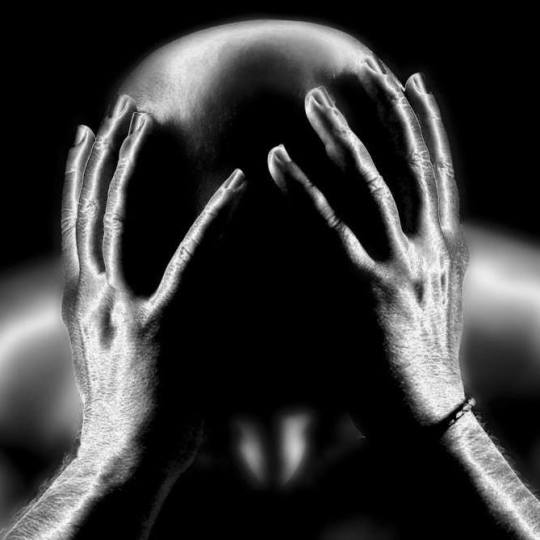
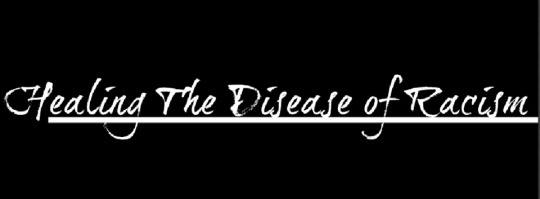
I’ve been on an extended break from #VoicesforRacialHealing podcasting to work on other projects, including a Philadelphia Assembled podcast on the impacts of gentrification and displacement, called “Taking My Stake Out of the Ground.” The work never stops!
In my travels online and in real time, I’m always on the lookout for opportunities to connect with interesting, hard working, passionate visionaries - everyday people who are doing courageous, transformative and creative work to change the world in which we live - work that aligns with the goal of #VoicesForRacialHealing, which is to “promote conversation, healing, empathy and greater cross-cultural understanding regarding race in America and its harmful impacts.”
I was thrilled to connect with Rhonda Sekhmet-Ra earlier this year through a mutual contact on social media. I was immediately intrigued by the title of her virtual anti-racism workshop entitled “Healing The Disease of Racism,” and wanted to learn more. One thing led to another, and here we are. I’m excited and honored to use my platform to highlight Rhonda’s important work. When I resume #VoicesForRacialHealing podcasting, I will definitely have Rhonda on as a featured guest.
In the meantime, I invite you to read more about this important and very necessary project. When you’re finished, give the Healing The Disease of Racism Facebook page a like and a follow for thoughtful content and updates on how to sign up on Eventbrite for the next installment of the Healing the Disease of Racism workshop!
1. Who is Rhonda Sekhmet-Ra and what motivated you to create your “Healing the Disease of Racism” workshop?
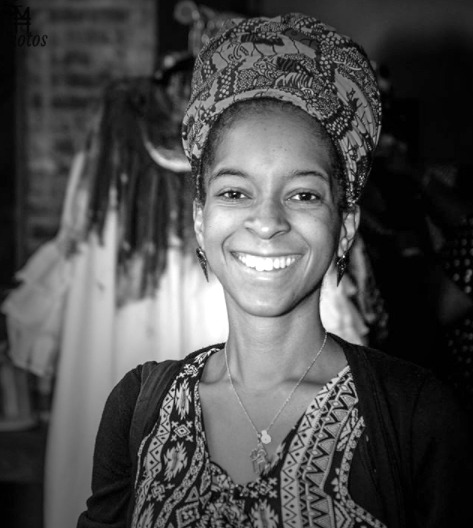
I am a counselor, poet and social activist. For years, I have hosted open discussions and lectures on combating racism. I was motivated to create this workshop by my strong desire for others to have a deeper understanding of racism and how to eradicate it. As a healer, I believe that many solutions to severe problems can come through healing in addition to awareness. I wanted to provide a new way to look at racism and offer guidance on how we can all work to eradicate it.
2. Most anti-racism workshops are conducted in face-to-face, group settings, but you chose to conduct it virtually. Why?
Conducting the workshop virtually allows participants to receive this unique information even if they live in areas that may not have these type of workshops. Furthermore, this use of technology allows the participation of people that may not be able to attend otherwise due to comfort level, schedule or travel barriers.
3. Describe a typical enrollee. Are they new to anti-racism work or are they typically looking for a refresher training?
Most of those who have enrolled in previous workshops have professional or community experience in anti-racism work. However, the workshop is open to all people interested in receiving the information regardless of experience. The workshop contains information that is relevant to those with or without experience in anti-racism work.
4. What do you intend for learners to do immediately after the complete the “Healing the Disease of Racism” workshop? How do you gauge impact?
During the workshop, participants will identify specific changes that they can make in their daily lives in order to help eradicate racism. I hope that participants will be dedicated to carrying out these changes. The impact of the workshop is reflected on what participants choose to do after they leave the workshop. I do my best to follow up with participants following the workshop. However, my interest is heavily focused on the collective impact of all anti-racist workers.
5. How can interested people get more information about future workshops?
Interested participants can view, like and follow the new "Healing the Disease of Racism" Facebook page for updates. Registration for the workshop is completed through Eventbrite - the next one is scheduled for Saturday, November 18th. For direct questions/media inquiries, I can be emailed at mswlion at yahoo dot com
Thank you Rhonda!
If you are interested in having your anti-racism project highlighted on #VoicesForRacialHealing contact us at voicesforracialhealing at gmail dot com or racismisasickness at gmail dot com. Thanks!
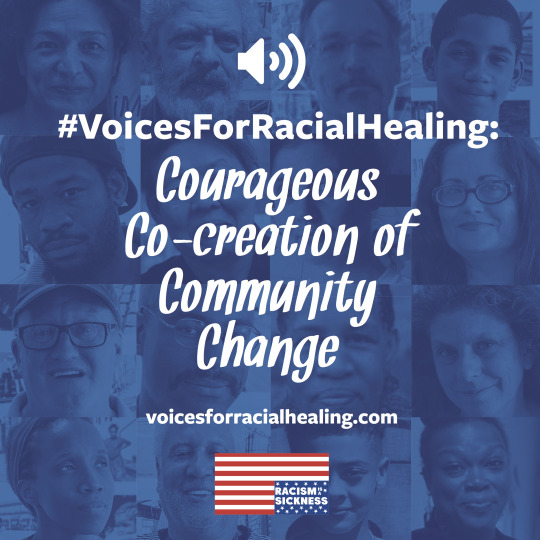
#voices for racial healing#phlassembled#taking my stake out of the ground#rhonda sekhmet-ra#healing the disease of racism#workshop#anti-racism#five questions#interview#tieshka smith#racism is a sickness
2 notes
·
View notes
Audio
Episode 14, recorded October 21, 2017: The "Taking My Stake Out of the Ground" is a #PHLAssembled/Reconstructions podcast series comprised of community narratives that examine and investigate the tension between the old and new in one Philadelphia neighborhood, while unearthing ways in which stakeholders cope with the changes. Hosted by #PHLAssembled collaborator Tieshka Smith, the podcast is one of many stakes in the ground, planted in the ears of those who are willing to listen, by courageous everyday people, sharing their personal stories of resistance and resilience in the face of powerful, external forces that displace and disrupt their, and our, collective sense of home and community.In this special episode, recorded on-site at the Perelman Building of the Philadelphia Museum of Art, you’ll hear from #PHLA collaborator Madura Chaudhari, who was giving out delicious samples of freshly brewed classic masala chai and Kashmiri pink chai in the #PHLAKitchen. She says, “Chai is more than just a beverage or a trend; it’s the amalgamation of kindness, tradition, Indian culture, history and stories in one cup.” I tasted both and I have to say that once you have a sip, you’ll never want the Americanized version of chai that you typically get from your local coffee shop!Madura’s chai bar was part of a day-long series of interactive programs and workshops on gentrification and displacement hosted by Philadelphia Assembled and the Reconstructions atmosphere on October 21, 2017. (Photo: Tieshka Smith)(Philadelphia Assembled)
#SoundCloud#music#Philadelphia Assembled#Storytelling#philadelphia assembled#philadelphia museum of art#chai#indian culture#indian tradition#indian history#reclaiming culture#reclaiming history#reclaiming traditions#masala chai#kashmiri pink chai
5 notes
·
View notes
Audio
Episode 13, recorded October 21, 2017: The "Taking My Stake Out of the Ground" is a #PHLAssembled/Reconstructions podcast series comprised of community narratives that examine and investigate the tension between the old and new in one Philadelphia neighborhood, while unearthing ways in which stakeholders cope with the changes. Hosted by #PHLAssembled collaborator Tieshka Smith, the podcast is one of many stakes in the ground, planted in the ears of those who are willing to listen, by courageous everyday people, sharing their personal stories of resistance and resilience in the face of powerful, external forces that displace and disrupt their, and our, collective sense of home and community.In this special episode, recorded on-site at the Perelman Building in the #PHLAKitchen, visual artist and art professor S. Damary Burgos and her son, Diego, share stories of community solidarity, resilience and strength on the island of Puerto Rico, during the weeks following Hurricane Maria. Burgos’ talk - which also featured specific recommendations on how we can continue to support ongoing, on the ground recovery and relief efforts on the island - was part of a day-long series of interactive programs and workshops on gentrification and displacement hosted by Philadelphia Assembled and the Reconstructions atmosphere on October 21, 2017. (Photo: Tieshka Smith) (Philadelphia Assembled)
#SoundCloud#music#Philadelphia Assembled#PHLA#Reconstructions#displacement#hurrican maria#puerto rico#climate refugees#climate displacement#repeal the jones act#natural disasters
4 notes
·
View notes
Audio
Episode 11, Recorded July 15, 2017: The "Taking My Stake Out of the Ground" is a #PHLAssembled/Reconstructions podcast comprised of community narratives that examine and investigate the tension between the old and new in one Philadelphia neighborhood, while unearthing ways in which stakeholders cope with the changes. Hosted by #PHLAssembled collaborator Tieshka Smith, the podcast is one of many stakes in the ground, planted in the ears of those who listen, as a form of resistance against powerful, external gentrifying forces that displace and disrupt our sense of home and community. In this episode, you’ll hear from Ricky, an Olde Kensington resident for over 15 years and a self-described caretaker of Hart Park and many of the private yards in the neighborhood. He talks with me about the best type of grass that thrives in neighborhoods like Olde Kensington, what neighbors can do together to preserve and maintain green spaces, why well maintained green spaces deter illegal dumping, and the initiative that he’s involved in that teaches gardening to young children. Most importantly, he gives some very keen advice to people moving into neighborhoods that are transitioning because of gentrification and displacement – two words: GET INVOLVED.Okay, here’s the question of the day: If you are a relative newcomer to a Philadelphia neighborhood and you might be seen by long-term residents as a gentrifier, have you gotten involved in your neighborhood, and if so, how has your involvement helped you make positive connections with people like Ricky? If not, what were some of the issues that held you back from doing so? Sound off in the comments.
(Philadelphia Assembled)
2 notes
·
View notes
Audio
Episode 10: The "Taking My Stake Out of the Ground" is a #PHLAssembled/Reconstructions podcast comprised of community narratives that examine and investigate the tension between the old and new in one Philadelphia neighborhood, while unearthing ways in which stakeholders cope with the changes. Hosted by #PHLAssembled collaborator Tieshka Smith, the podcast is one of many stakes in the ground, planted in the ears of those who listen, as a form of resistance against powerful, external gentrifying forces that displace and disrupt our sense of home and community. July 15th was hot, steamy and extremely uncomfortable – in other words, a typical summer afternoon in the city of Brotherly Love. This day also marked the close of a series of open houses that we’ve been hosting since June 3rd to greet neighbors, promote Philadelphia Assembled and the work of the Reconstructions atmosphere around the issues of gentrification and displacement, and invite people to view the space and share their own personal narratives. Klyde Breitton and Barry Thompson, president and vice-president, respectively, of the Philadelphia Tenants Union (http://phillytenantsunion.org), stopped by the Blueprint on this day to chat with me and record Episode 10. The Philadelphia Tenants Union was founded in 2016 and is a tenant-led organization dedicated to winning safe, decent, and affordable housing for every renter in Philly. Philadelphia is currently experiencing a housing crisis, where a fifth of the city's affordable housing has been lost between 2000-2014, eviction rates are as high as 15% in certain sections of the city, and landlords hold more power than ever in the courts and in the lobbying room. The PTU is committed to fighting against this through grassroots direct action and campaigning for laws such as Just Cause that would protect vulnerable tenants from unfair evictions. We believe that unless tenants across the city band together to fight for their rights, landlords will only keep getting stronger, housing prices will continue to rise, and people will continue to be displaced from their neighborhoods.In this episode, you’ll hear Klyde and Barry talk about the important work of the Philadelphia Tenants Union, and more specifically, about how their work addresses the tension between homeowners and renters. You’ll hear them talking in great detail about the challenges and realities faced when organizing citywide to help keep people – mainly low-income people of color - in their homes. Finally, we spend some time talking about the important role that homeowners play in the fight to stem the tide of gentrification and why the Just Case campaign needs to succeed. Despite the fact that displacement and gentrification affects people regardless of race or socioeconomic status, the likelihood of you being a target for gentrification increases if you are low-income and non-White. That’s right. Given the examples that Klyde and Barry shared, it’s pretty disheartening. Those who think that race and class don’t play a role in how this city is being gentrified to benefit those who are more often than not, White and middle and upper class, need to rethink their attitudes. When we ignore this elephant in the room, it’s akin to tapping on the first of a long row of dominoes and thinking that one won’t knock over the rest. Do you agree or disagree? Sound off in the comments and as always, thanks for listening.(Photo: Tieshka Smith)
(Philadelphia Assembled)
#SoundCloud#music#Philadelphia Assembled#STORYTELLING#penn wynn apartments#philadelphia tenants union#community
2 notes
·
View notes
Audio
Episode 9: The "Taking My Stake Out of the Ground" is a #PHLAssembled/Reconstructions podcast comprised of community narratives that examine and investigate the tension between the old and new in one Philadelphia neighborhood, while unearthing ways in which stakeholders cope with the changes. Hosted by #PHLAssembled collaborator Tieshka Smith, the podcast is one of many stakes in the ground, planted in the ears of those who listen, as a form of resistance against powerful, external gentrifying forces that displace and disrupt our sense of home and community.
There is an emerging body of research that suggests that there may be upwards of 385,000 rowhomes in Philadelphia. According to the Healthy Rowhouse Project, each rowhome is an extraordinary asset that allows the city to offer homeownership to more low- and moderate-income individuals and families than virtually any other city in the country. Because of this, the Healthy Rowhouse Project, a collaborating partner of Philadelphia Assembled, is dedicated to preserving these rowhouses, and improving the health of those who live in them.
Despite the rain, an audience gathered at the Blueprint for a Just Neighborhood site this past Thursday, July 13th, to enjoy hoagies and engage in a lively dialogue about the work that the Healthy Rowhouse Project is doing to improve substandard conditions in rowhouses occupied by low- to moderate-income Philadelphians.
You’ll hear remarks by Healthy Rowhouse Project co-founder (and Reconstructions workgroup member) Kiki Bolender and Healthy Rowhouse Project executive director Jill Roberts, followed up with dialogue around how preserve the architectural character of a neighborhood, and how we can ensure that “mom and pop” landlords have access to financing they need to make their properties not just safe for themselves but for their tenants.
Finally, you’ll hear from Peter Myers, a community organizer with the Philadelphia Tenants Union, who was among those in attendance Thursday. He asserts that public conversations – and housing policy – intentionally overlook the real and pressing concerns and interests of renters in favor of homeowners.
It’s clear that the Philadelphia rowhome is a blessing and adds to the overall character of the city. When considering both sides of the debate, the rowhome is a real battleground as well between competing interests that really need to find a better way to work together and find common ground. What do you think? Do you believe that there is a real and measurable power difference between the average owner of a rowhome and renters or tenants? Do you think that Philadelphia’s existing housing policies favor homeowners and contribute to the latest wave of gentrification and displacement that we’re seeing here? Can the Just Cause campaign waged by the Philadelphia Tenants Union lead to critical policy changes that give tenants more leverage and peace of mind? Why might there be such a resistance to this work?
Have your say in the comments, and thanks for listening!
(Photo: Tieshka Smith)
(Philadelphia Assembled)
2 notes
·
View notes
Audio
Episode 8: The "Taking My Stake Out of the Ground" is a #PHLAssembled/Reconstructions podcast comprised of community narratives that examine and investigate the tension between the old and new in one Philadelphia neighborhood, while unearthing ways in which stakeholders cope with the changes. Hosted by #PHLAssembled collaborator Tieshka Smith, the podcast is one of many stakes in the ground, planted in the ears of those who listen, as a form of resistance against powerful, external gentrifying forces that displace and disrupt our sense of home and community. In this episode, you'll hear remarks from Rachel, recorded during the June 9th gathering at the Blueprint for a Just Neighborhood site. Her comments echo the sentiments of so many people Smith encounters in her work – people who are on the fence about getting involved in their neighborhood even when they see the changes going on around them and have real concerns about being swept up in them. Take a listen to what she had to say… and in the comments, share if you can relate to Rachel’s insights. Thank you! (Photo: Tieshka Smith)
(Philadelphia Assembled)
2 notes
·
View notes
Audio
Episode 7: The "Taking My Stake Out of the Ground" is a #PHLAssembled/Reconstructions podcast comprised of community narratives that examine and investigate the tension between the old and new in one Philadelphia neighborhood, while unearthing ways in which stakeholders cope with the changes. Hosted by #PHLAssembled collaborator Tieshka Smith, the podcast is one of many stakes in the ground, planted in the ears of those who listen, as a form of resistance against powerful, external gentrifying forces that displace and disrupt our sense of home and community. On July 9th at the Blueprint for a Just Neighborhood site at the Tillmon Community Garden, Smith had a chance to be a part of an audience assembled to bear witness to another Philadelphia treasure: Storyteller Denise Valentine. Denise presented “Neighborhood Histories, Unforgetting and Reconnecting: The Master Narratives”, a series of powerful and provocative stories emerging from her archival research into oral histories and folklore, making connections to Philadelphia neighborhoods and ancestral homelands. In part one of this episode, you’ll hear Denise share some touching and poignant memories of her late mother and family, all sparked by hearing a Sam Cooke song and seeing images from Betty Leacraft’s Kensington Memories quilt. In part two, she sat down with me to give some practical and advice to listeners who may be wondering what they can do to help preserve the existing social fabric in their neighborhoods. Feel free to share in the comments your own thoughts, reactions, reflections and earliest family memories sparked by song and art. As always, thank you for listening, and enjoy episode 7 of the Taking My Stake Out of the Ground podcast!
(Philadelphia Assembled)
0 notes
Audio
Episode 6: The "Taking My Stake Out of the Ground" is a #PHLAssembled/Reconstructions podcast comprised of community narratives that examine and investigate the tension between the old and new in one Philadelphia neighborhood, while unearthing ways in which stakeholders cope with the changes. Hosted by #PHLAssembled collaborator Tieshka Smith, the podcast is one of many stakes in the ground, planted in the ears of those who listen, as a form of resistance against powerful, external gentrifying forces that displace and disrupt our sense of home and community. On July 9th at the Blueprint for a Just Neighborhood site embedded in the Tillmon Community Garden at 4th and Master streets, Smith had a chance to be a part of an audience assembled to hear an artist talk by Betty Leacraft, a nationally and internationally renowned fiber, textile, quilt and mixed-media artist and Philadelphia treasure. Leacraft, a self-described shape shifter of textiles, created Kensington Memories, a massive textile quilt of selected found and archival images representing the passage of time in the Kensington neighborhood. The quilt, commissioned by Philadelphia Assembled, attempts to answer two important questions to help frame the conversation we’re having about gentrification and displacement in this community: What did Kensington look like in the past? How has it changed? In part one of this episode, she responds with her trademark humor and wisdom to a question from an audience member on how she came to use quilting as a medium for storytelling. In part two, she sits down with Smith to give some advice to people wondering what they can do to help preserve the existing social fabric in their neighborhoods. Feel free to share your own thoughts, reactions, reflections and neighborhood memories – joyful and painful - in the comments. Thank you for listening, and enjoy episode 6 of the Taking My Stake Out of the Ground podcast! (Photo: Tieshka Smith)
https://soundcloud.com/user-776101844/bettyleacraft-kensingtonmemories
(Philadelphia Assembled)
0 notes
Audio
Episode 5: The "Taking My Stake Out of the Ground" is a #PHLAssembled/Reconstructions podcast comprised of community narratives that examine and investigate the tension between the old and new in one Philadelphia neighborhood, while unearthing ways in which stakeholders cope with the changes. Hosted by #PHLAssembled collaborator Tieshka Smith, the podcast is one of many stakes in the ground, planted in the ears of those who listen, as a form of resistance against powerful, external gentrifying forces that displace and disrupt our sense of home and community. On June 22nd, Smith had a chance to attend a very informative, interactive, energizing and participatory teach-in on gentrification and displacement. Many thanks to Philadelphia Assembled, the Women’s Community Revitalization Project, and the Philadelphia Coalition for Affordable Communities for making this teach-in possible. What you’ll be hearing in this episode are conversations between attendees who were tasked with plotting on a map of Philadelphia “regions” those things that give them character. Among other things, these are the elements that contribute to the social and economic fabric of each Philadelphia neighborhood. They deserve our attention and protection because when they are neglected or overlooked, they can weaken and come undone, and become vulnerable to complete erasure with each successive wave of gentrification and displacement. As you’re listening, think about those elements in your neighborhood that give it its own character, and what you can do to preserve and strengthen these strands. Feel free to share your thoughts in the comments. (Photo credit: Denise Valentine)
(Philadelphia Assembled)
#SoundCloud#music#Philadelphia Assembled#community#PHLAssembled#Philly#developmentwithoutdisplacement
0 notes
Audio
I’ve been on hiatus from #VoicesForRacialHealing podcasting and project work for the last few months, working on a new podcast for Philadelphia Assembled, an expansive art and civic engagement project that tells a story of radical community building and active resistance through the personal and collective narratives that make up Philadelphia’s changing urban fabric. These narratives are being unearthed and presented as a result of a collaborative effort between the Philadelphia Museum of Art and a team of individuals, collectives, and organizations as they experiment with multiple methodologies for amplifying and connecting relationships in Philadelphia’s transforming landscape. Challenging, inspiring, and as big as the city, Philadelphia Assembled asks: how can we collectively shape our futures?
“Taking My Stake Out of Ground” is a podcast comprised of community narratives that examine and investigate the tension between the old and the new in one Philadelphia neighborhood, while unearthing ways in which stakeholders cope with the changes. Interviews for Episode 1 were recorded onsite during the June 1, 2017 public opening of the Blueprint for a Just Neighborhood site embedded in the Tillmon Community Garden at 4th and Master in the Olde Kensington neighborhood. You’ll hear responses to the question, “What is your vision of a just neighborhood?” Podcast host and #PHLAssembled collaborator Tieshka Smith envisions these episodes as a series of aural stakes in ground, planted in the hearts and minds as seeds, germinating new forms of resistance and evidence of resilience in the face of powerful, external gentrifying forces that displace and disrupt our sense of home and community.
Take a listen, this and two other episodes are live on the Philadelphia Assembled Soundcloud channel, with more to come. And if you are interested in being recorded live for the podcast, stop by the Blueprint for a Just Neighborhood site between 12-5pm on Saturday July 1st, 8th or 15th.
(Philadelphia Assembled)
#SoundCloud#music#Philadelphia Assembled#Community#PHLAssembled#Philly#developmentwithoutdisplacement
0 notes
Photo
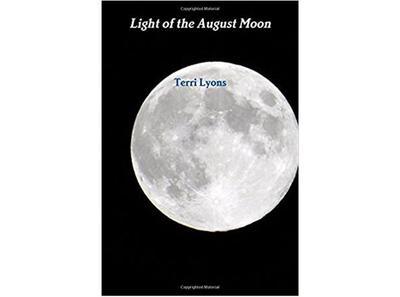
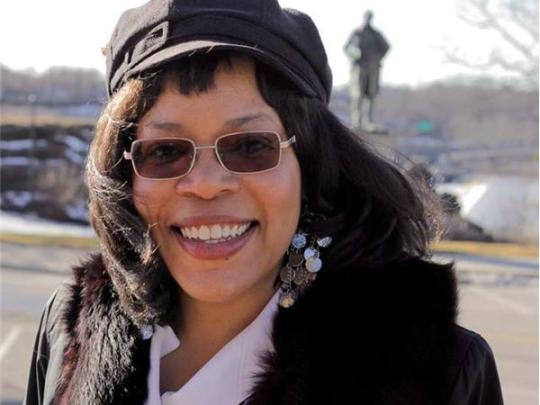
(via 'Light of the August Moon' author Terri Lyons Joins Us 04/15 by Voices For Racial Healing | Writing Podcasts)
In this episode, we're joined by featured guest Terri Lyons. A Philadelphia native, Terri is an award-winning storyteller, actress, keynote speaker, and author of eight books, including her latest, "Light of the August Moon," a collection of short stories of modern history with a poetic twist, stories of the American experience spanning the Roaring Twenties through the Disco Seventies.
Among other things, we'll discuss Terri's process of researching and writing "Light of the August Moon," and why this work should be required reading by all in the age of Trump. We'll delve into the ways in which her work - and its references to and critiques of America's painful yet resilient past - cuts through collective psychic denial about racial and social injustice, promotes a level of introspection that can be healing and restorative, and raises our collective consciousness and understanding about history and its multiple impacts.
I hope you'll join us for what will be a lively and thought-provoking episode of #VoicesForRacialHealing.
#voices for racial healing#blog talk radio#podcast#racial healing#writing#terri lyons#philadelphia#philadelphia writers
3 notes
·
View notes
Photo
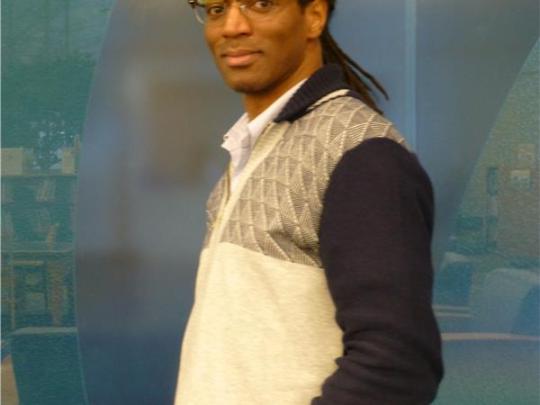
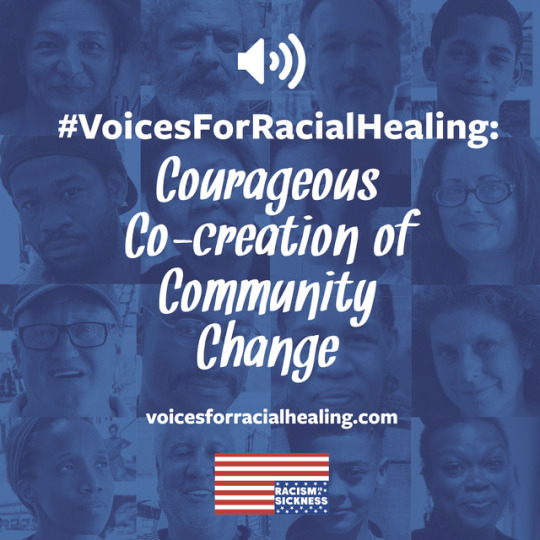
(via Guest & TEDx Speaker Charles Sutton Asks, 'What Can You Do, With What You Know?' 04/08 by Voices For Racial Healing | Lifestyle Podcasts)
Maker education has the potential to empower all individuals to think critically about complex systems and encourage them to be active participants in building and shaping the future they want.
In this episode, we are joined by Charles Sutton, a librarian and aspiring public intellectual. Through his professional and personal work, he is committed to developing human agency and structural change where needed. His interests include early and emergent literacy, critical making, and maker education/empowerment. Charles is a thinker and a tinkerer. The following quote from Ralph Ellison’s Invisible Man sums it up best: “Call me, since I have a theory and a concept, a “thinker-tinker.”
In 2015, Charles spoke at TEDx Evansville on the topic "Maker Education: Empowering individuals to make a better world." He discusses how he transformed his home into an urban ecological experiment – implementing workable alternatives to current practices that threaten our water, energy and food security.
Can makers of all stripes facilitate healing and restoration of urban communities? Can they - we, because we all can make something - help to ameliorate the deep-seated wounds to communities caused by racism, sexism, ableism, ageism, economic disinvestment, etc.?
We will talk about this and much more in this episode. Please join us!
#voices for racial healing#podcast#blog talk radio#charles sutton#maker education#maker empowerment#evansville indiana#TEDx speaker
2 notes
·
View notes
Video
#RevolutionOfValues MLK Riverside Speech (excerpt) Reading
0 notes
Text
Seeking Featured Guests for #VoicesForRacialHealing podcast
Hmu via email: voicesforracialhealing at gmail dot com if you or someone you know would like to be a featured guest in May or June on the weekly #VoicesForRacialHealing podcast (@healracismUSA on Twitter).
Website
Blog Talk Radio channel - archived content
0 notes
Photo
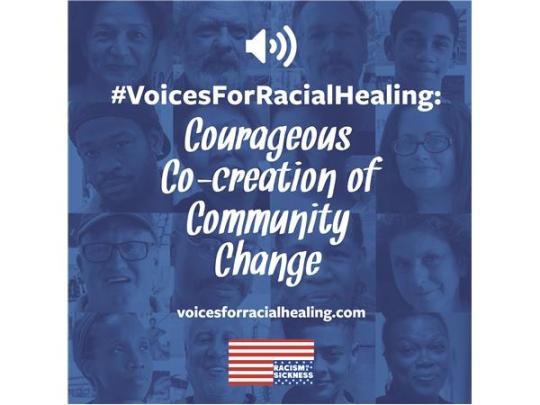
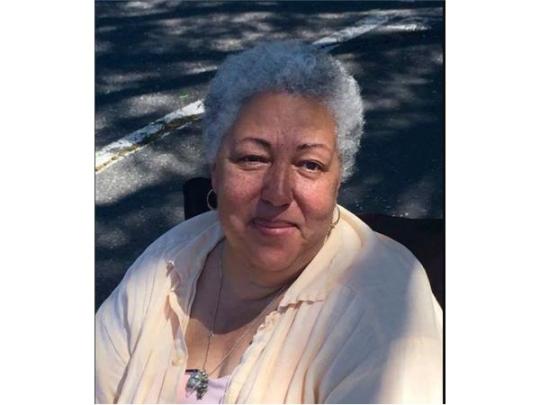
(via Soul Restoration Series Creator and Healer Erva Baden Joins Us 03/31 by Voices For Racial Healing | Spirituality Podcasts)
This episode, I am joined by Erva Baden, a contemporary shaman who weaves together various healing modalities with compassion and humor to journey with folks who are committed to their own path of deep healing and transformation. She is one of the original co-founders of Shadow Work Seminars (TM), a Reiki master, and a long-time facilitator in the Woman Within organization. She has also studied energy work, chakra healing, and core shamanic techniques under the direction of internationally recognized teachers. With more than 25 years experience in facilitating process work around the world, Baden's Soul Restoration series draws on her more recent study of trauma recovery to assist people to reclaim their lives and to restore their souls’ radiance from the effects of the traumas of racism.
She states: As a woman of African descent, I have a growing awareness of how the 400 years of enslavement and oppression of my ancestors here in the United States of America still live in me as subtle messages influencing my thoughts and behaviors. So…. having done lots of internal work over many, many, many, and many more continuing years it appears that I’ve been prompted to get out there and offer what I know and what I’ve experienced to a larger community of black folks. I believe we all have the innate capacity to heal – from anything. Sometimes we just need a coach, trainer, guide – someone to cheer us on, offer suggestions and walk with us along the path (it can get pretty rocky!). This is mind, body and spirit work at the deepest level. I will commit to you if you commit to yourself.
For more info about Erva and her Soul Restoration workshops, visit http://onesourceenergywork.com
#voices for racial healing#podcast#blog talk radio#shamanism#reiki master#philadelphia#soul restoration#energy work#intergenerational trauma#anti-racism#trauma recovery#racial trauma#healing
2 notes
·
View notes